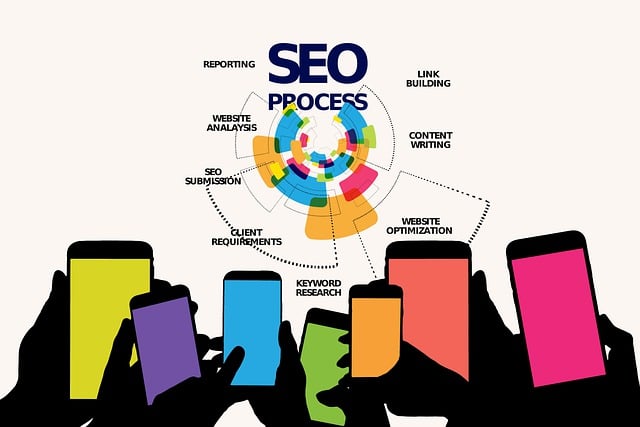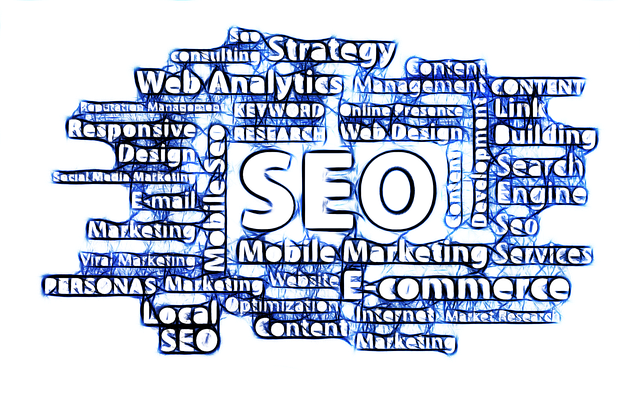SEO Workshops for Agencies are essential tools for optimizing website infrastructure and code, driving visibility and performance on search engine results pages (SERPs). These workshops empower professionals with knowledge in technical audits, site speed optimization, mobile-friendliness, structured data implementation, XML sitemaps, and robots.txt management. By integrating best practices into their workflow, agencies can deliver high-quality digital solutions, attract more organic traffic, and outshine competitors in a crowded digital landscape. Regular audits and monitoring ensure sustained growth and keep agencies up-to-date with industry trends, ultimately enhancing client success.
In today’s digital landscape, Technical SEO is a game-changer for agencies aiming to thrive. This comprehensive guide, designed for SEO workshops, explores the foundational elements that underpin agency success. From understanding complex technical concepts to practical solutions like optimizing website structure and implementing structured data markup, each step empowers agencies to enhance search visibility and user experiences. Discover how regular audits, monitoring, and a mobile-first approach ensure long-term growth in this ever-evolving digital realm.
Understanding Technical SEO: The Foundation for Agency Success

Technical SEO forms the bedrock upon which agency success is built. It involves optimizing website infrastructure and code to enhance visibility and performance in search engine results pages (SERPs). By ensuring websites are crawlable, indexable, and load quickly, agencies can improve user experience and send powerful signals to search engines like Google. This, in turn, leads to higher rankings, increased organic traffic, and better conversions.
SEO Workshops for Agencies play a pivotal role in educating professionals about these intricacies. Through interactive sessions and expert guidance, workshops equip agency teams with the knowledge and skills to conduct comprehensive technical audits, identify and fix issues like broken links or site speed bottlenecks, and implement best practices that align with search engine guidelines. Ultimately, this foundational understanding enables agencies to deliver exceptional service to their clients, driving tangible results in the digital landscape.
Identifying and Fixing Common Technical SEO Issues in Agencies

Identifying and addressing common technical SEO issues within agencies is a critical step in enhancing online visibility and performance. Many agencies, despite their expertise in creative strategies, may overlook certain technical aspects that can significantly impact search rankings. Regular SEO workshops for agencies become invaluable tools to educate teams on these hidden pitfalls. By hosting interactive sessions, professionals can delve into specific challenges like site speed optimization, mobile-friendliness checks, and structured data implementation. These workshops empower agency staff to identify issues such as broken links, duplicate content, or incorrect XML sitemaps, which often go unnoticed but can hinder search engine crawling efficiency.
Through practical exercises and case studies, SEO workshops enable agencies to fix common problems quickly. They learn to utilize relevant tools for technical audits, ensuring every website is optimized for both users and search engines. By integrating these practices into their workflow, agencies can deliver high-quality digital solutions that not only meet client expectations but also rank higher on search engine results pages, ultimately driving more organic traffic and business opportunities.
Optimizing Website Structure for Improved Crawling and Indexing

For agencies looking to enhance their online visibility, optimizing website structure is a key aspect of Technical SEO Workshops. A well-structured site allows search engine crawlers to navigate and index content efficiently, leading to better search rankings. This involves creating a hierarchical architecture with clear categories and subcategories, ensuring each page has a unique and descriptive URL, and implementing proper internal linking. By organizing content logically, agencies can ensure that both users and search engines can easily find relevant information, boosting overall website performance.
Additionally, optimizing for crawling and indexing includes utilizing sitemaps to provide a clear overview of the site’s structure and ensuring dynamic content is crawlable. Regularly reviewing and updating these elements as the agency’s digital presence grows is essential. This strategic approach ensures that search engines can access and understand every page, resulting in improved website discoverability and a better user experience.
Implementing Structured Data Markup for Enhanced Search Visibility

Implementing Structured Data Markup (SDM) is a powerful strategy for agencies looking to boost their search visibility. By adding specific, standardized data to website code, SDM helps search engines understand and interpret content better, leading to improved rankings. This is especially beneficial for complex agency websites with diverse services, as it provides a clear picture of what the site offers, increasing the likelihood of appearing in relevant search results.
SEO Workshops for Agencies can equip professionals with the skills to implement SDM effectively. These workshops should cover essential topics like choosing the right schema type for different content types (e.g., Service, Product, Event), structuring data accurately, and ensuring compatibility across all pages. With proper training, agencies can enhance their online presence, attract more qualified leads, and outshine competitors in a crowded digital landscape.
Enhancing Site Speed: A Key Performance Indicator for SEO Agencies

Site speed is a critical component that SEO agencies often overlook, yet it significantly impacts user experience and search engine rankings. As users expect instant access to information, slow-loading websites can lead to higher bounce rates and lower engagement, which directly affects SEO performance. In today’s digital era, where competition for online visibility is intense, enhancing site speed should be a top priority for agencies. By optimizing website performance through various techniques like image compression, leveraging browser caching, and implementing a content delivery network (CDN), agencies can ensure their clients’ websites deliver fast loading times.
SEO workshops for agencies should dedicate sessions to understanding the fundamentals of site speed optimization. These workshops can equip professionals with the knowledge to identify bottlenecks and implement strategies that improve page load times. Given that search engines prioritize user experience, a focus on site speed is not just about technical SEO; it’s a key performance indicator (KPI) that drives better rankings, higher traffic, and improved conversions—ultimately contributing to the success of any digital marketing campaign.
Building a Mobile-First Approach to Meet User Expectations

In today’s digital era, a mobile-first approach is no longer an option but a necessity. With the vast majority of users accessing websites and services on their smartphones and tablets, search engines like Google have adapted their algorithms to favor mobile-friendly sites. For agencies conducting SEO workshops, this means focusing on creating experiences that are not only optimized for desktop but superior on mobile. Implementing responsive design, fast loading times, and intuitive navigation ensures your clients’ websites cater to user expectations and rank higher in mobile search results.
SEO Workshops for Agencies should emphasize the importance of understanding user behavior on mobile devices. This involves analyzing touch interactions, optimizing content for smaller screens, and ensuring seamless transitions between different viewports. By adopting a mobile-first mindset, agencies can help their clients stay ahead of the curve, meet current user expectations, and prepare for future search engine updates that continue to prioritize mobile performance.
The Role of XML Sitemaps and Robots.txt in Technical SEO Strategies

XML Sitemaps and Robots.txt files are essential tools in a Technical SEO strategy for agencies. An XML sitemap provides search engines with a detailed map of your website’s structure, allowing them to crawl and index pages efficiently. This is especially crucial for large or complex websites, ensuring that every page has the opportunity to be discovered and optimized. By creating a well-structured sitemap, agencies can enhance their site’s visibility and improve overall SEO performance.
Robots.txt, on the other hand, plays a vital role in controlling access for web crawlers. It acts as a set of instructions for search engines, specifying which pages or sections should be indexed and which should remain hidden. This is important for maintaining privacy, preventing duplicate content issues, and ensuring that only relevant pages are made accessible to users. SEO Workshops for Agencies often emphasize the strategic use of these files to optimize website architecture and enhance search engine interaction.
Regular Audits and Monitoring: Ensuring Long-Term Agency Growth

Regular audits and monitoring are essential components of sustainable growth for any agency, especially in the dynamic field of technical SEO. Conducting comprehensive SEO workshops that include site audits helps agencies identify and rectify technical issues that may hinder search engine visibility and client success. By establishing a consistent audit schedule, agencies can stay proactive rather than reactive when it comes to optimizing their clients’ online presence.
Through ongoing monitoring, agencies gain valuable insights into the performance of their clients’ websites over time. This data allows them to make informed decisions about future strategies, tailor SEO efforts to specific client needs, and ultimately drive long-term growth. Regular audits also enable agencies to stay abreast of the latest industry trends and updates, ensuring that their techniques remain effective and compliant with search engine guidelines.
